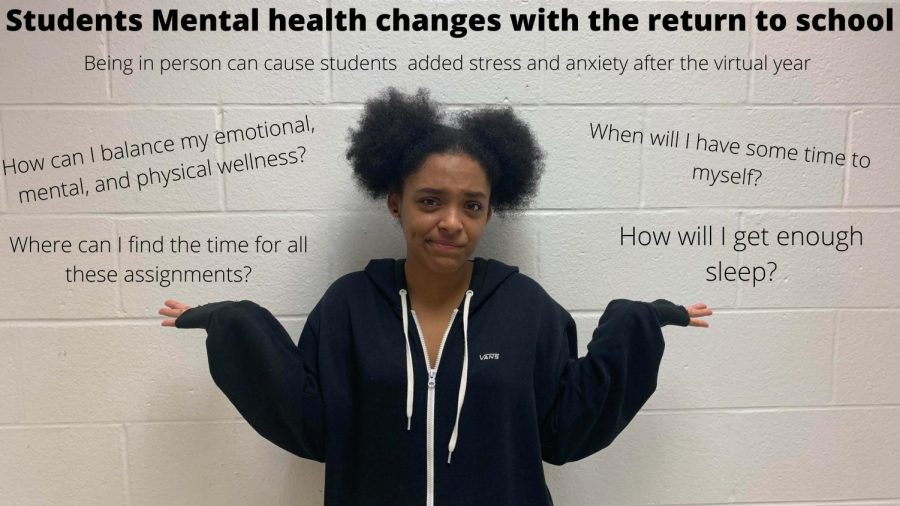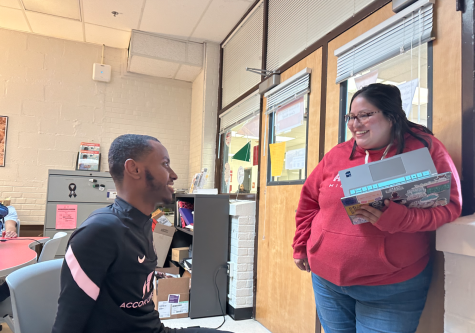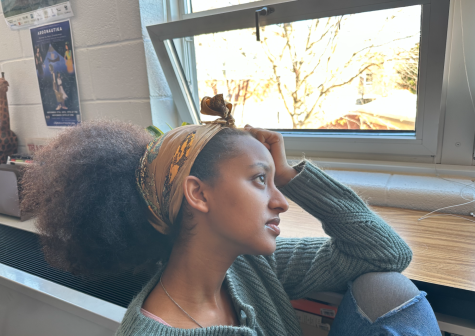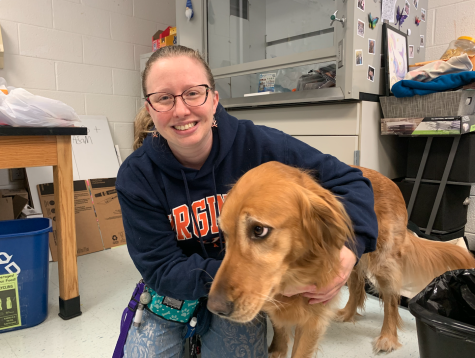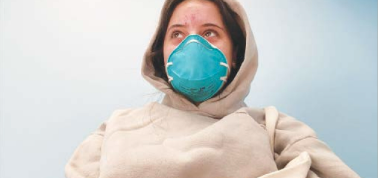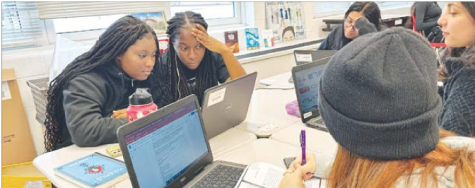Return to school affects mental health
As we are return to full in-person school after a year and a half of being online, the mental load it has taken on students has been tremendous.
Many students have spoken out about the toll of the transition to five days of in-person instruction compared to fours day of online classes last year.
Having to wake up significantly earlier everyday, completing all your homework after being in school for eight hours can be very difficult. Staying after for school activities and sports can be a dramatic change from staying online all day. Not to mention the added stress given from Covid and the issues thrown at students in their day-to-day lives.
“For us juniors, it has been a very different environment than what we’re used to. Even though we went to in-person school freshman year, we didn’t complete the entire year, and we’re now taking much more rigorous courses,” junior Ruftana Beyene said.
Teachers have also not been particularly understanding of the situation in most circumstances, and have tried to rush into this year’s curriculum in an attempt to “get back all the time they missed.”
This narrative has been heavily pushed onto students for the short weeks we have been in school.
“For me personally, I have taken a lot of self care days and I have tried to be more easy on myself because it’s a big change compared to sophomore year,” Beyene said.
This year has been particularly hard for sophomores since all they’ve known is the virtual high school experience.
The workload compared to last year has been different in many different aspects. For one, the homework during the virtual year had been very minimal if anything, none. This year, teachers have been assigning almost daily homework.
“This year has been really different as a sophomore because I’m used to online school, so I had to quickly adapt to my new environment and learn in in-person classes which I’m still getting used to,” sophomore Susana Aburish said.
Last school year, students were given the opportunities to get more sleep and more time to themselves, rightfully so, due to the toll Covid was taking on them and their families.
Covid is still very present despite the false narrative that covid has magically gone away and that vaccines have saved us.
The reality is that 100 hundred million Americans who are eligible still have not gotten vaccinated.
That being said, the toll on students’ mental health is equally the same and they should be given the same benefits given to virtual students last year.
“Since my last in- person year was freshman year, and I’m now a junior, I feel like I missed out on a big chunk of high school even though we learned virtually. This year has been much more fast paced than I expected, so I’m still learning how to manage my time so that I can participate in sports and after school activities,” junior Ellie Davis said.
Being separated for so long over the virtual school year made it difficult for students to connect with their friends through a screen.
The main source of communication became texting or facetime calls.
This caused a sense of isolation for students whose main way of connecting with friends was through school.
An entire year without in-person communication forced friendships to naturally drift.
Not being able to maintain regular contact with loved ones for a long period can cause many mental issues and illnesses such as depression, anxiety and loneliness.
Being reunited after being away from other people for so long may cause students to lose their social skills and cause some awkwardness between past friendships.
This may spark the beginning of a bad cycle of anxiety when trying to talk to others.
On the other hand, being in person may positively affect students’ mental health by allowing students to reconnect with their friends.
Being reunited with people who you haven’t seen in a long amount of time can strengthen your relationships and the time away might have allowed the heart to grow fonder.
The after school sports and clubs help students meet new friends and form new friendships with those in the community as well.
Most vulnerable for mental illnesses at Annandale would be the IB Students, and those taking honors and difficult classes. IB students are piled high with assignments and tasks such as their IA’s, extended essays, CAS, and the other clubs and activities they are involved in.
Becoming involved in extracurriculars, sports, and clubs is a great way to form new relationships in a positive environment. If you plan on joining a winter sport remember you will need to be fully vaccinated and be able to show proof.
We commend all students for showing up everyday and doing their best, given the circumstances we’re in. It shows great courage and achievement and if you feel as though you are going through any mental issues do not hesitate to, reach out to a counselor, friend, or loved one.
Being in person everyday is a big adjustment for everyone and the Annandale community is here to support one another through these difficult times. Annandale highschool offers students many different resources such as the school phycologist, counselors, therapist, and the many other trusted adults we have here in the building.
If you or someone you know is in immediate distress or is thinking about hurting themselves, call the National Suicide Prevention Lifeline toll-free at 1-800-273-TALK (8255) or the toll-free TTY number at 1-800-799-4TTY (4889).
You also can text the Crisis Text Line (HELLO to 741741) or go to the National Suicide Prevention Lifeline Website.

Senior Mariamawit Endalkachew is in her fourth year on the A-blast staff. She is currently pursuing the IB Diploma and is excited for the school year....

Senior Sereene Darwiesh has been on The A-Blast since freshman year. She spends her time reading and hanging out with friends, her hobbies consist of baking...



